Previous Philately Goes Bananas Philately Goes Bananas  Next Next
One would not expect the darker side ...
One would not expect the darker side of the political activities of multinational banana companies to be celebrated on postage stamps but links can be found. For example, a 5 peso stamp issued by Colombia on June 9, 1981 portrays President Miguel Abadia Mendez (fig. 25) who, in 1928, under pressure from the United Fruit Company and the American government ordered the Colombian army to break up a strike of banana workers resulting in theMatanza de las bananeras (Banana Massacre) in Cianaga, Magdalena. That massacre features in the novel 100 Years of Solitude by Gabriel Garcia Marquez which is also the subject of a stamp issued by Cuba in 2016. The continuing importance of the banana industry is acknowledged on a 1956 stamp portraying a banana plantation in Magdalena (fig. 26) and on a 1981 airmail issue showing fruit exports (fig. 27).
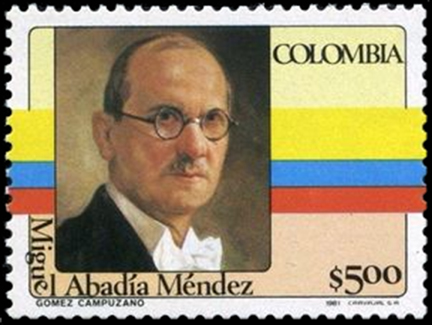
(fig.25)
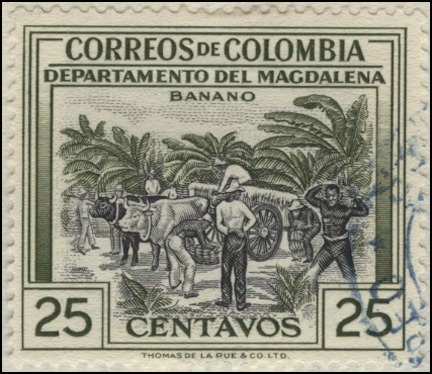
(fig.26)
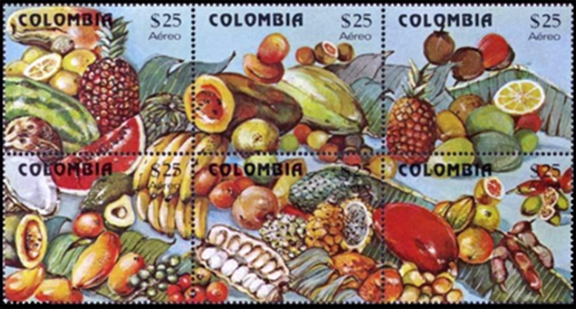
(fig.27)
Guatemala provides another example of a country where local politics were manipulated by the banana industry. Minor Cooper Keith was an American railway entrepreneur who became engaged in the banana industry to generate traffic for his railways and to take advantage of land concessions that were granted to help finance railways. Already established in Costa Rica, Panama and the Magdalena Department of Colombia, Keith signed a contract with Manuel Estrada Cabrera (fig. 28), the president of Guatemala, giving the company tax-exemptions, land grants, and control of all railroads on the Atlantic side of the country in 1904. In the 1950s the Guatemalan government, in an effort to implement rural land ownership reform, expropriated company property offering compensation based on the assessed value of the property that had been the basis for taxation; it is alleged that the United Fruit Company used the public relations resources mobilized by Edward Bernays to collaborate with the CIA to plant disinformation leading to the toppling of the government of Jacobo Arbenz Guzman, democratically elected in 1951 (fig. 29) after only three years. Fortunately, public relations tools were not always wielded to achieve such questionable ends.
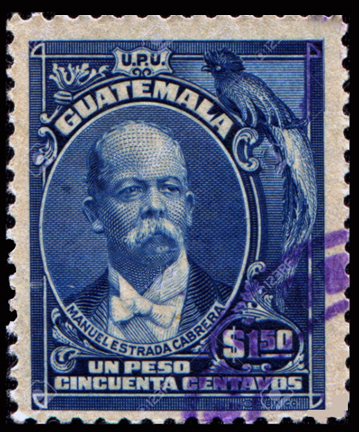
(fig.28)
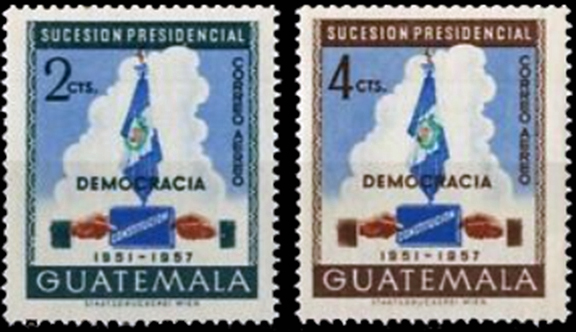
(fig.29)
 Previous Previous  Next Next
Return to the
Philately Goes Bananas
Home Page.
|